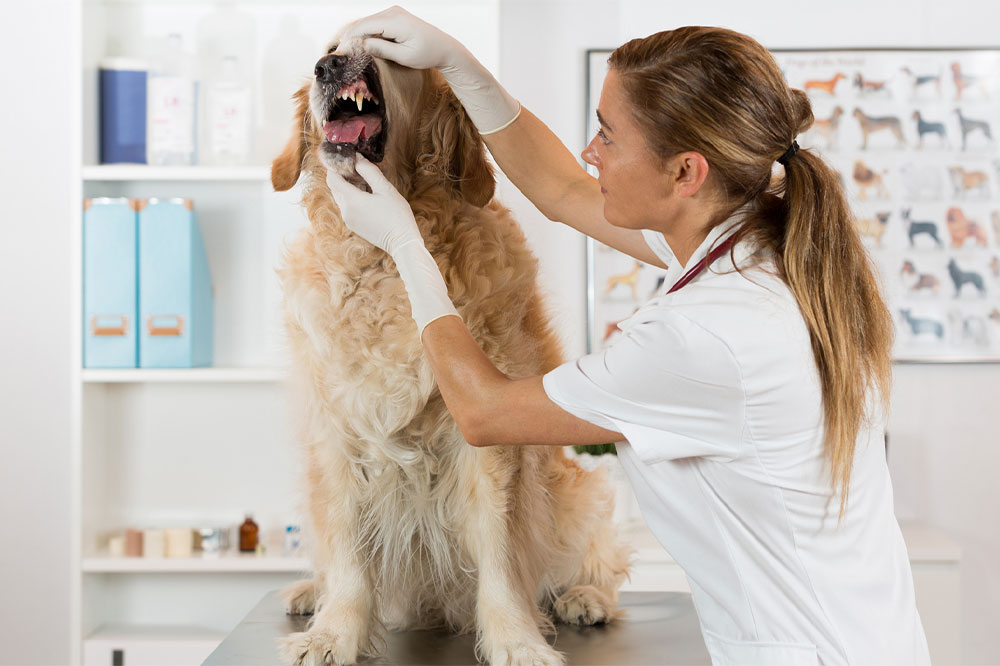Helpful Home Remedies to Relieve Pain in Dogs
Who doesn’t want their pets to live a long, healthy, pain-free life? Dogs suffer from severe pain from different conditions due to a number of causal factors. Musculoskeletal problems, such as arthritis, nerve injury, or skin and respiratory issues, can increase their discomfort, and finding the right pain treatment for dogs can get a bit challenging. However, consult a vet first for a proper diagnosis before opting for any treatment options.
Check for signs of distress
Before giving prescription treatments for dogs, it is crucial to understand signs that indicate discomfort and pain. Below are a few of them:
- Limping, panting excessively, and whining
- Sudden antisocial, irritated, or aggressive behavior
- Constantly licking their joints or a particular area of the body
- Difficulty in walking, lying down, and reluctance to play
- Tenderness, redness, or swollen body parts
- Change in sleeping pattern and food habits
- Drooling excessively and a lowered tail
If your pet dog is experiencing any of these symptoms, immediately consult a specialist.

Pain relief treatments for dogs without side effects
Once you are aware of your dog’s health condition, you don’t have to run to the store to find prescription treatments for dogs. Yes ! Home remedies for pain might help your dog immediately if the discomfort is because of gastrointestinal problems like diarrhea.
Natural remedies are best for pain from skin allergies like dermatitis in dogs too. So check out the pain relief tips that even a vet would approve.
Use heat therapy (cold and heat packs)
Heat and cold packs are best for muscle pain and joint stiffness and work no less than a dog pain treatment option.
Massage certain painful areas
Neurological problems like facial paralysis or joint pain due to old age are painful. To help your dog with such conditions, massage gently on the affected area in a circular motion to stimulate the blood flow. This will reduce inflammation and boost the healing process.
Add healthy joint supplements for older dogs
Osteoarthritis is common in old dogs and makes them uncomfortable and cranky. Giving them daily supplements containing vitamins and minerals can reduce inflammation in the joints. A healthy and balanced meal and the right treatment plan will improve the hip and joint functions, reducing discomfort.
Invest time in weight management
When dogs are healthy with an optimum weight, the need for surgeries and the risk of joint injuries are reduced. However, if your dog has pain in the legs and back, keep a check on its weight. Remember, if there is less gravitational force on the sore area, the pain or discomfort will be less aggravated, accelerating the healing process.
Try alternative therapies for pain
If you want to try out alternative therapies rather than giving the pet multiple oral treatment options for dog joints, hydrotherapy sessions are a great option. A therapeutic warm water swim can provide pain relief and has no side effects.
Embrace the power of natural ingredients
Ginger and turmeric are holistic powerhouses that help alleviate the pain of osteoarthritis in dogs. These natural ingredients are rich in antioxidants and reduce inflammation due to acute and chronic pain. So mix a little fresh ginger or turmeric in your dog’s food or use supplements and let its anti-inflammatory properties soothe their pain.
Never forget low-impact exercises
Did you know walking maintains your pet’s joint health and prevent chronic conditions causing painful joints? Yes! So, even if your dog is experiencing pain, talk to a vet and incorporate daily low-impact activity. This will help restore your pet’s mobility.
What are some other pain relief options?
Stop giving your dog food that might aggravate inflammation flare-ups and increase pain. Processed meat like hot dogs (chicken, pork, turkey, or beef) plus sausages causes inflammation.
So switch to a more balanced diet that is light and easy to digest for dogs. You can give them cruciferous vegetables, beetroots, apples, mushrooms, bell peppers, etc., during recovery after surgery or injury. The doctor might recommend these food changes.
Moreover, never rely on pain treatments for dogs without consulting a vet as it will avoid risks of side effects.
A dog pain relief home remedy is better than opting for prescription treatment options. However, if you have already tried all the natural remedies with little to no relief, contact a vet to get a prescription for non-steroidal anti-inflammatory drugs (NSAIDs) to treat the pain. The use of the listed home remedies and vets’ advice will help you manage your dog’s discomfort easily. Also, check your pet’s resistance levels to any of the treatment options. If they experience any side effects, immediately contact a vet before it aggravates the condition.
